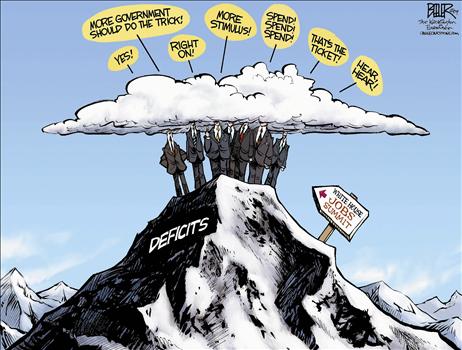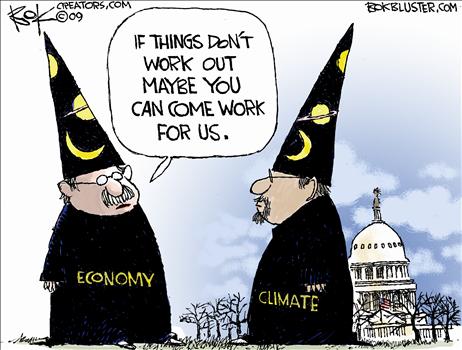It was during the Great Depression of the 1930s that our political leaders decided that the best way to become prosperous was to “prime the pump” via government spending. We adopted the philosophy of the British economist John Maynard Keynes, who said that deficits don’t really matter that much.
Prior to the Great Depression, most Americans didn’t look to government to create prosperity. They understood that the free market accomplished that feat. Ronald Reagan tried to wean us from the Keynesian concepts in the 1980s, and we did prosper. But now that we are suffering our worst economic times since the Carter years, we’ve unlearned the lesson. Faith has been restored in government spending. We believe government has the answers. Witness the so-called Jobs Summit this past week.
What was its purpose? What did it accomplish? Well, it made some people feel better—our government is attending to the problem, so we know it will turn out okay, right? The cartoon has it correct in depicting their heads in the clouds. They really can’t see the solution.
Of course, being a government economist is a very exacting science.
It’s just as precise and exacting as the climate-change field. Both are great at false prognostications.
I’ve always heard from academics that you can’t compare a government’s budget with a family’s. They say that while families have to be careful how they spend, governments don’t have the same constraints. They can always tax to receive more, and when the economy grows, there will always be more money available. The problem: taxing to receive more doesn’t grow the economy; in fact, it has the opposite effect. Governments have to restrain their spending as well. Congress keeps going through the motion of creating budgets. Now, when will they pay attention to them?



